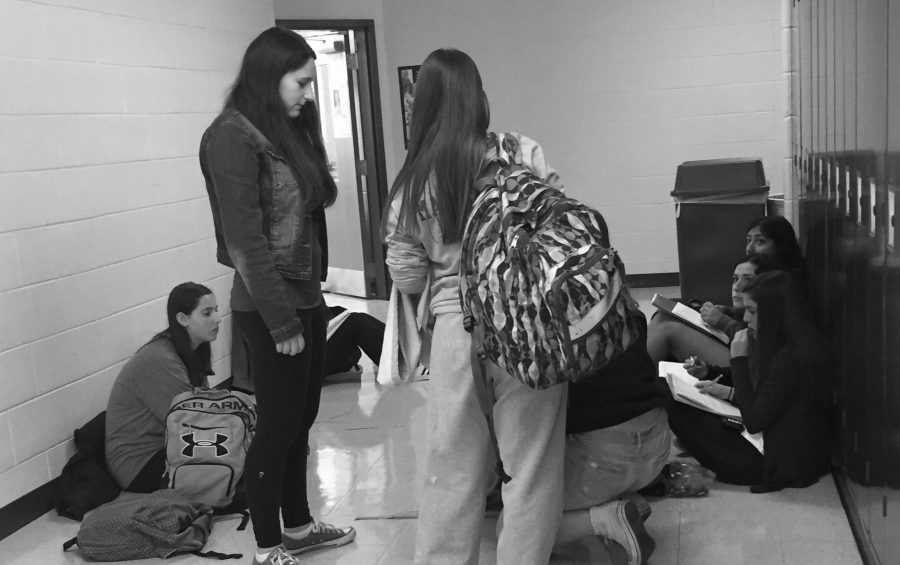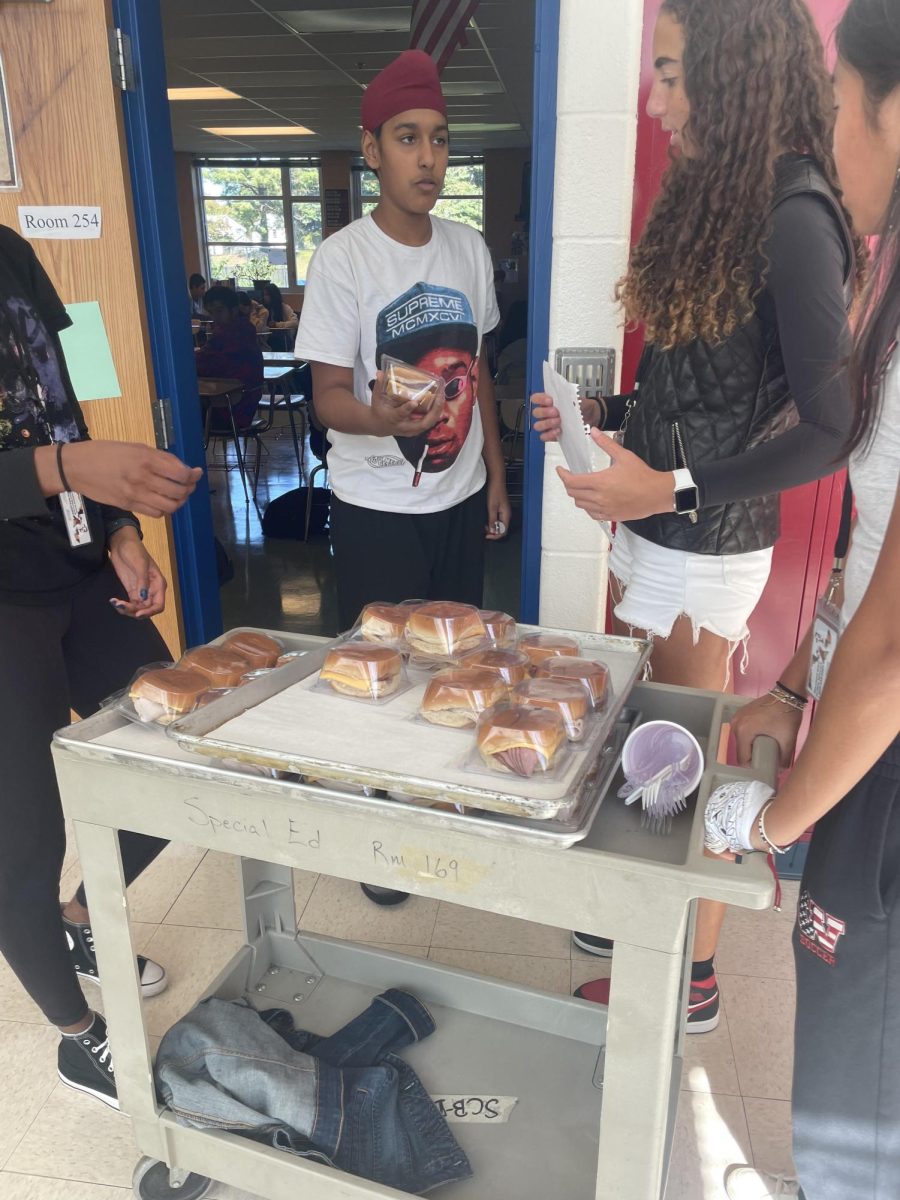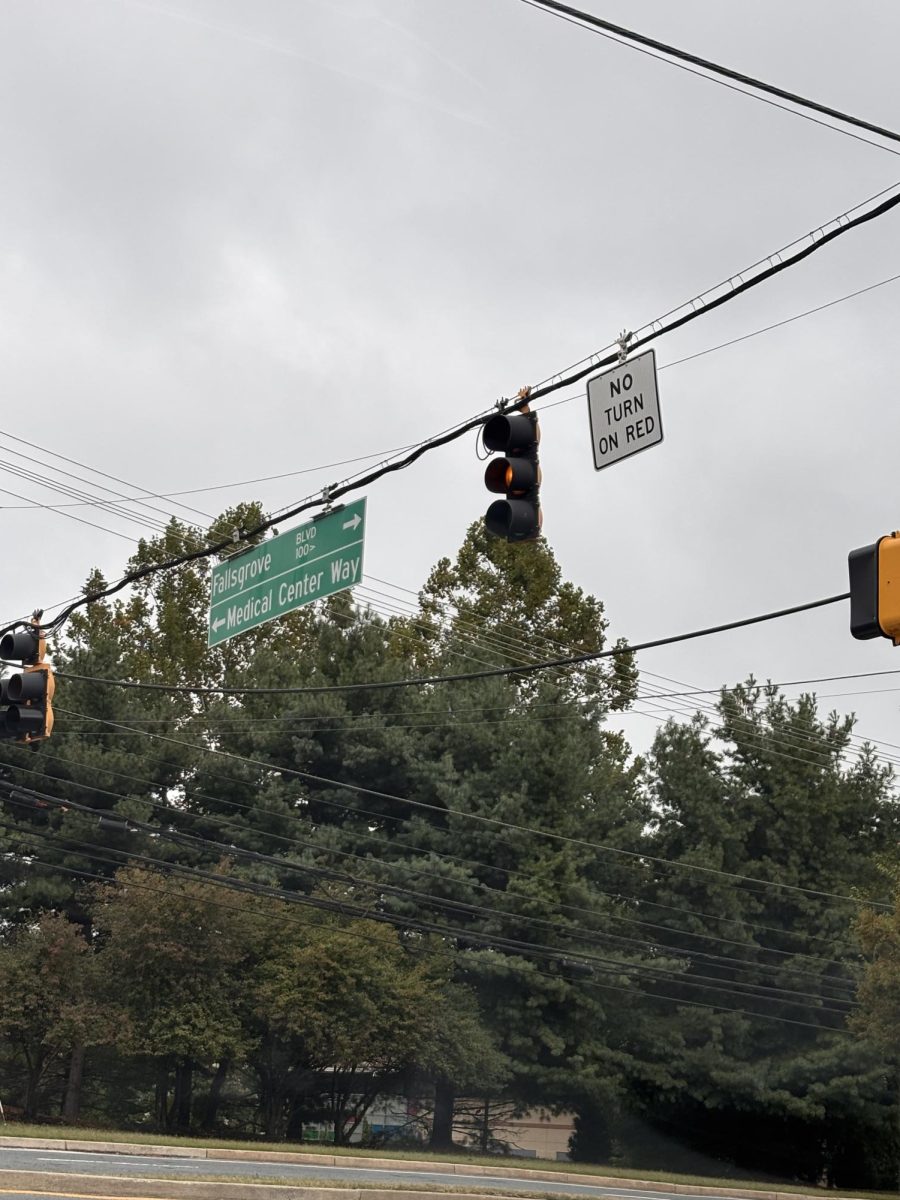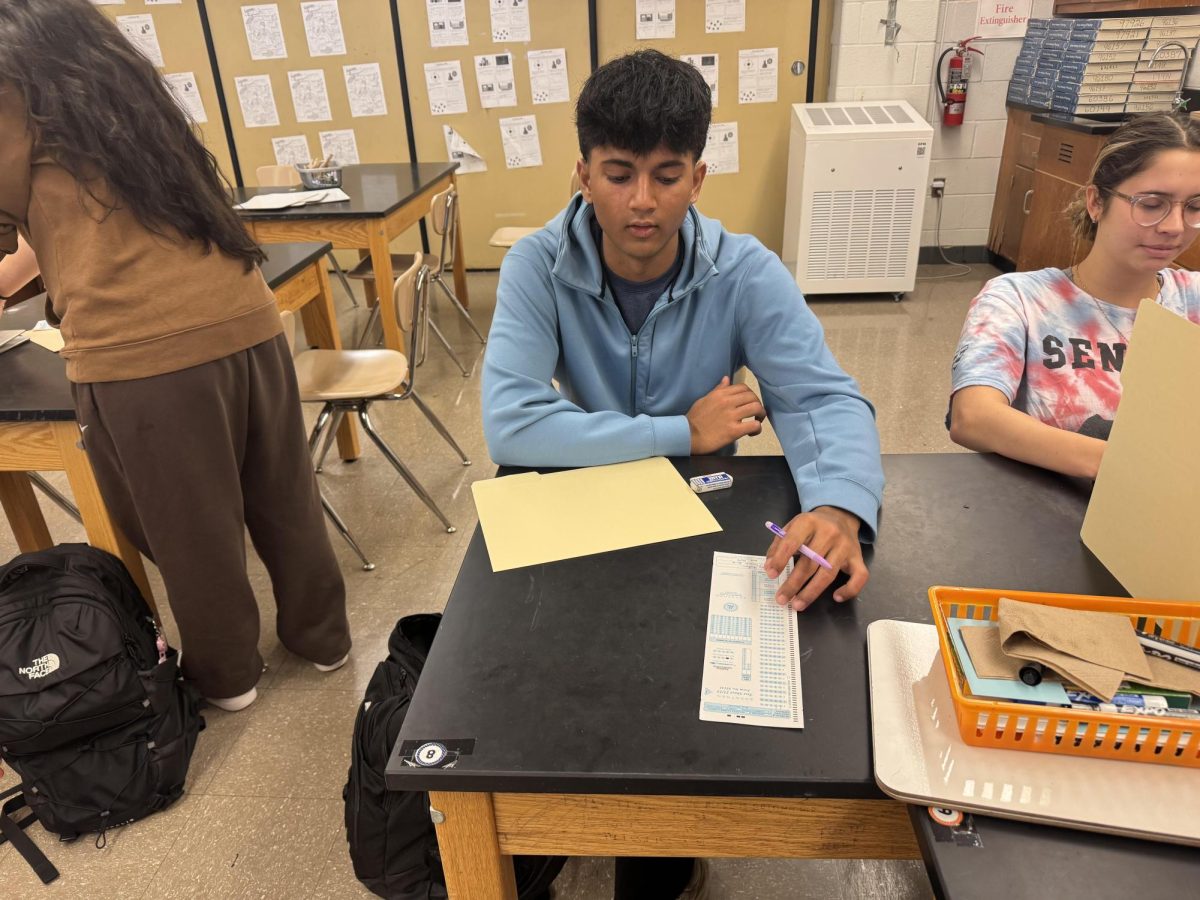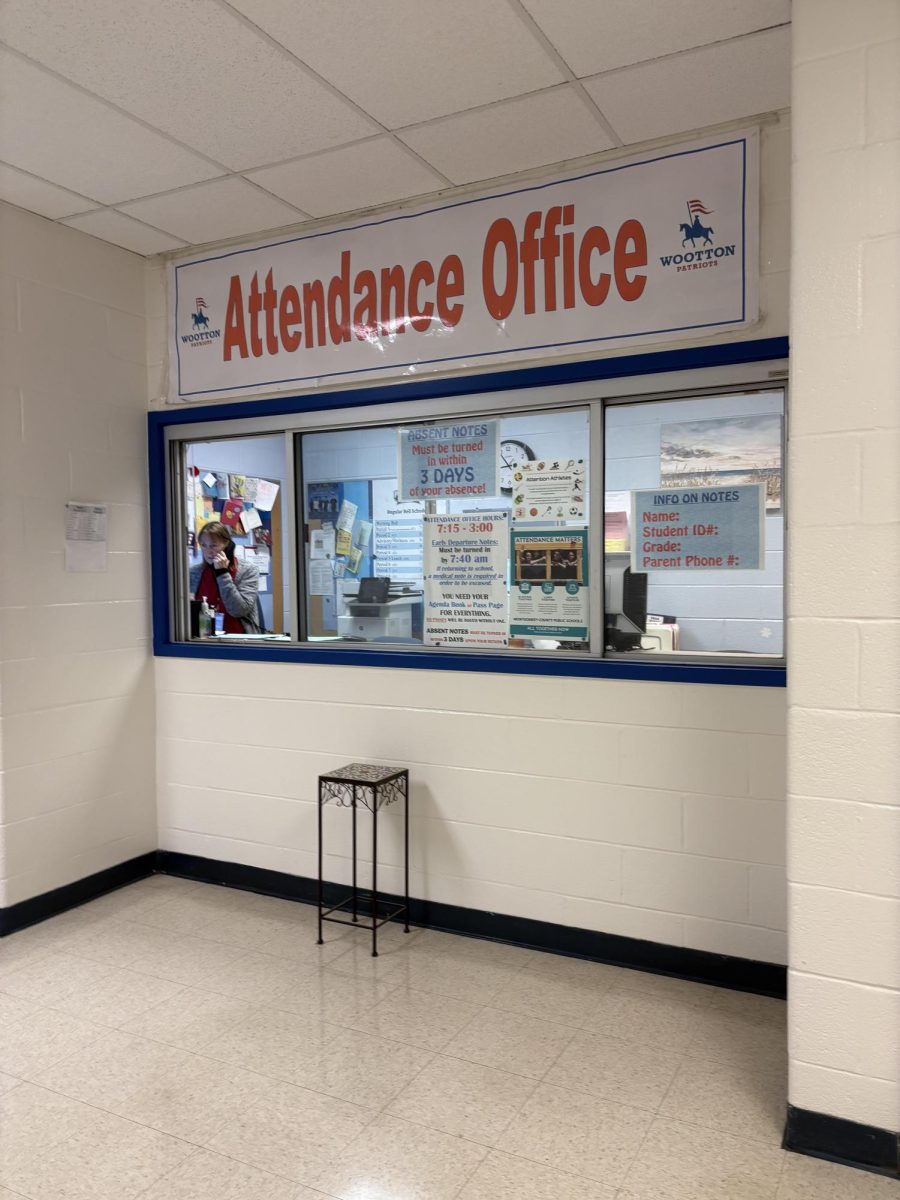Peers can affect students in all kinds of ways, whether it’s somethings as major as drug use, or as minor as wearing a seat belt.
There is no denying that kids are easily influenced in everyday decisions, and while it’s easy to say that they’re naive, you must remember that we, including myself, are learning as are grow. As people get older, they mature, but not everyone is mature during their high school years. It turns out that there are plenty of activities that students do depending on what the people around them are doing.
Drug Use: It should be no surprise that teens abuse drugs. In a 2012 survey by the National Institute on Drug Abuse for Teens (NIDA), it was found that when the program surveyed “more than 46,000 teens—8th, 10th, and 12th graders to be exact—[it] showed that 13 percent of 8th graders, 30 percent of 10th graders, and 40 percent of 12th graders say they have used a drug at least once in the past year.”
While this may not surprise most people, these numbers are way up from the 1990s. A study done by the University of Michigan showed that in 1991, only seven percent of eighth graders, 18 percent of 10th graders and 23 percent of 12th graders had tried drugs in the last year. The most popular drug was marijuana. While alcohol is still prevalent in high school culture, a large number of kids have found that marijuana is a better time. “Weed is a social drug, which is why I like it so much. I’m not really a huge fan of alcohol; I don’t like losing control of my body,” a student, who wishes to be unnamed, said.
As for why kids start in the first place: The Canadian Lung Association “found that 70 percent of teens who smoke have friends who smoke or started smoking because of peer pressure.”
A lot of kids feel like they won’t fit in with their circle of friend unless they participate in whatever activities are going on, and in some cases, they may be right. They may be shunned by their peers if they refuse to partake. It doesn’t appear that drug culture is going away anytime soon, and that the cycle of friends getting friends to start doing drugs will continue.
Sex: As uncomfortable as it is, it’s time to talk about sex. In an article from Psychology Today, in which “researchers questioned 1,854 subjects between the ages of 13 and 24 in a national survey,” it was concluded that “one in three boys ages 15-17 say they feel pressure to have sex, often from male friends.”
Young men might feel like they aren’t a ‘true man’ until they lose their virginity. On the other hand, “teen girls feel less pressure–only 23 percent said they felt such coercion.”
The difference in pressure is noticeable, but is it because women enjoy sex less? The answer appears to be no. In an article by The Atlantic, dating expert Chiara Atik explains that “women want sex, but they don’t want to be seen as forward (or worse, desperate). Men want sex but are intimidated, unconfident, or don’t want to be seen as domineering.”
While women enjoy sex as much as men, they usually don’t want to be labelled, usually under a term like ‘slut.’ This is why girls are pressured so much less by other girls, but what hasn’t been mentioned is pressure from men. In a survey done by Netscape, it was revealed that “41 percent admitted they had participated in unwanted sex at least once, and that “the most common reason for having unwanted sex was fear their boyfriend would become angry.”
Girls often feel that they need to “put out” to make their significant other happy, and often feel powerless when their emotional connection is too strong to say goodbye to them. This is where the pressure becomes intense, and often leads to unwanted sex.
Health: This is one of the most important aspects of our lives, and fortunately (or unfortunately), our peers have a big impact on it. If you have friends who love going to the gym, whether it be daily or a few times a week, you will most likely join them in their quest to getting ripped. “I like going to the gym with my friends because it helps me put on muscle, but I also use it as a social activity,” senior Jacky Chung said.
The same thing can happen in a negative way. If you have a friend who loves to eat out all the time, and is always snacking on junk food, chances are you will develop these habits too. This may cause your health to deteriorate.
This isn’t the only example of poor health. An article written by the Seattle Post-Intelligencer said “If you spend your time with friends and peers who pay no attention to hygiene practices like showering, you are also likely to trivialize the importance of cleanliness as an important part of overall health.”
If you are always sleeping over at their house, and they decide to skip brushing their teeth every night, you will most likely end up doing the same. Peer pressure involving health is important, but I’m not just talking about physical health. Mental health is just as, if not more, important than physical. While disorders like anxiety and depression are usually caused in the brain, they can be escalated or eased by your friends. An article by The Huffington Post claimed that “the participants [in a study] with a few tight BFFs had lower social anxiety, increased sense of self-worth and fewer symptoms of depression. Those who were considered more popular by their peers showed higher levels of social anxiety as adults.”
Mental illness can actually change years after you’ve moved on from high school, but the root cause may be from what you did in high school.
Safety: In a NIDA-funded study, “teens driving with their friends in the car were more likely to take risks—like speeding through yellow lights—if they knew that two or more of their friends were watching. Teens were also significantly more likely to act this way than adults in the same experiment.”
Teenagers drive differently depending on who is in the car. That’s why the MVA has a law in place that says that, once obtaining your driver’s license for the first time, you are not allowed to drive anyone outside of your immediate family for five months. They know kids drive a little recklessly when they’re with their peers. In an article written by the Associated Press, they claim that “a teenage driver’s risk of dying in an accident increases dramatically when there are other teens in the car, and plummets when there’s an adult looking on.”
Teenagers think that if they break the law or drive in an endangering way, their friends will think it’s cool. Parents, however, will not. “I always drive slowly and carefully when my parents are in the car. I always feel like they’re going to take my car away if I don’t,” another anonymous student said.
It can be seen often in both the neighborhoods surrounding the school, and people driving on Wootton Parkway, that there are a lot of reckless drivers out there. Unfortunately, a bunch of them happen to be teenagers who are trying to “show off.”
Academics: Learning is the reason we all gather into the building everyday. How you perceive your education, however, correlates to how much you’ll get out of it. According to a study published by the Williams Project on the Study of Economics in Higher Education, “stronger students do have an impact on their peers and actually help improve the overall academic performance of the peer group.”
For some groups, being smart is looked down upon. Not everyone values education, as there may be other things more important in life. The earlier you write off school, the harder it is going to be to get on track. On the other hand, “students that want to go to a four-year college tend to hang out with others with similar aspirations.”
People typically associate themselves with people who they can talk about their goals with. These people may end up applying to colleges based off of their friends’ recommendations. Students may find themselves places they had never even considered after high school, thanks to the input of their peers.
Never underestimate the power that peers hold over you, whether good or bad.
Max Jordan
Editor-in-Chief


